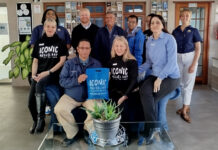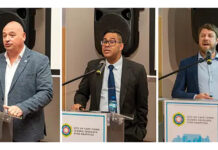To garner more response to the City’s recent directive for businesses to reduce organic waste, the Urban Waste Management Directorate has decided to undertake another round of awareness and education, before enforcement officially begins.
The City of Cape Town is continuing efforts to notify organic-waste generating businesses that they will soon be required to make alternative plans for disposal of this waste type, or face a fine.
The most recent awareness efforts reached 128 businesses, including malls and hotels around the Cape Town CBD, Sea Point, Green Point, Camps Bay,
Muizenberg and Simon’s Town areas. These facilities/businesses often generate large volumes of food waste.
The importance of reducing organic waste
The gas that is produced when organic waste, such as food waste, decomposes in a landfill is an extremely potent greenhouse gas. Some estimates say that this gas, made up primarily of methane, has a global warming potential 25 times higher than carbon dioxide.
In terms of the City’s Integrated Waste Management (IWM) By-law, businesses should have already developed an integrated waste management plan (IWMP) that covers how they will minimise waste in their operations. With the new Provincial directive, they will now be required to update their plans to specifically detail how they will reduce organic waste immediately by 50%, and by 100% by 2027. Businesses visited were given information packs, including background information around the directive and guidelines for developing an IWMP.
What businesses need to know
In the coming months, the City will continue its awareness and education efforts, with a strong focus on the food processing industry. After 30 November 2023, the pressure on business to reduce organic waste will intensify, and the City will begin to issue notices of non-compliance to those who have not responded to awareness and education efforts. These will include a deadline by which compliance is required to avoid a fine.
The fine for failure to submit an IWMP is currently R2 000. In addition, companies could be fined for failure to separate waste with the intention of minimising waste (R2 500) or failure to comply with a notice and directions given in a notice issued by the waste management officer or duly authorised official (R2 500). More than one fine could apply depending on the situation.
‘In Cape Town, we have already felt the effects of climate change with the drought and, as a society, we need to be more conscious of how we manage organic waste and how businesses and our lifestyle can influence this.
‘We realise that many businesses may have little capacity to implement new processes or take on additional costs, but this requirement around organic waste needs to be enforced soon to help look after our future generations and environment. If voluntary compliance does not occur then we need to do what is necessary to protect our children’s future,’ said Mayoral Committee Member for Urban Waste Management, Alderman Grant Twigg.
Online submission of Waste Management Plans
Go to the solid waste accreditation site to submit your waste management
plan: http://web1.capetown.gov.za/web1/swma/
Application forms are available on the City’s website: https://www.capetown.gov.za/City-Connect/Register/Business-and-trade/Register-as-an-accredited-waste-services-provider
Submit written requests to: waste.accreditation@capetown.gov.za
Issued by: Media Office, City of Cape Town















